In 2017, the Pao School University Counselling Office (UCO) launched its 'Pao Career Exploration Series' (or Pao CES) programme, which aims to create an effective on-campus platform for career exploration. Through a series of carefully designed activities, such as career forums and expeditions, the programme builds bridges between students and potential employers, enabling them to investigate the professional world they will eventually enter.
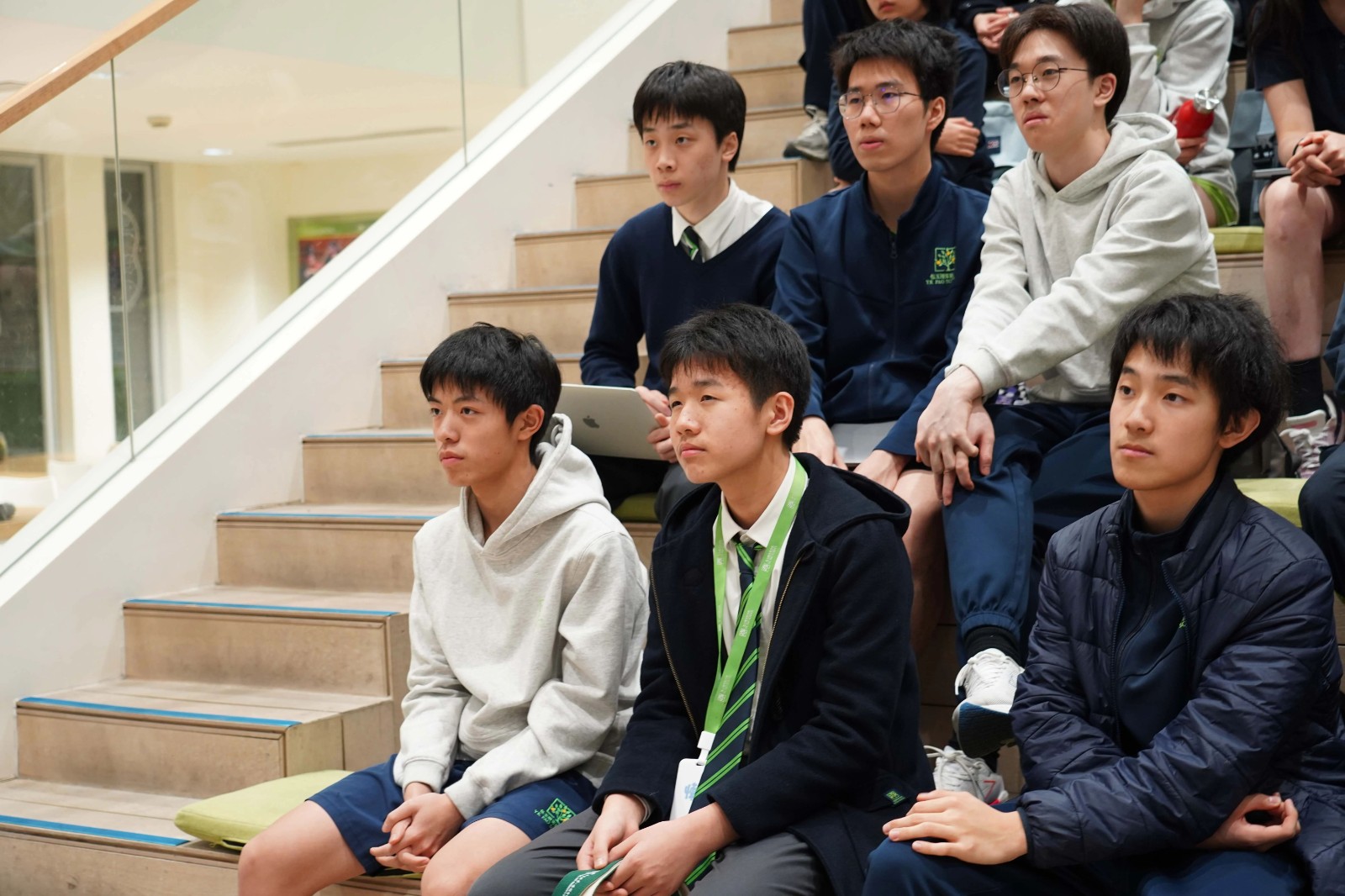
Over the past school year, the Pao CES program has offered students an in-depth introduction to various fields, from advertising, to cancer research, social media management, and architectural design. As part of this program, Pao CES hosted a special session featuring two alumni from the Class of 2018—Peter Huang and Selina Gong, who are currently entrepreneurs in Boston. Through an online connection, the two alumni engaged in deep dialogue with current students and faculty.
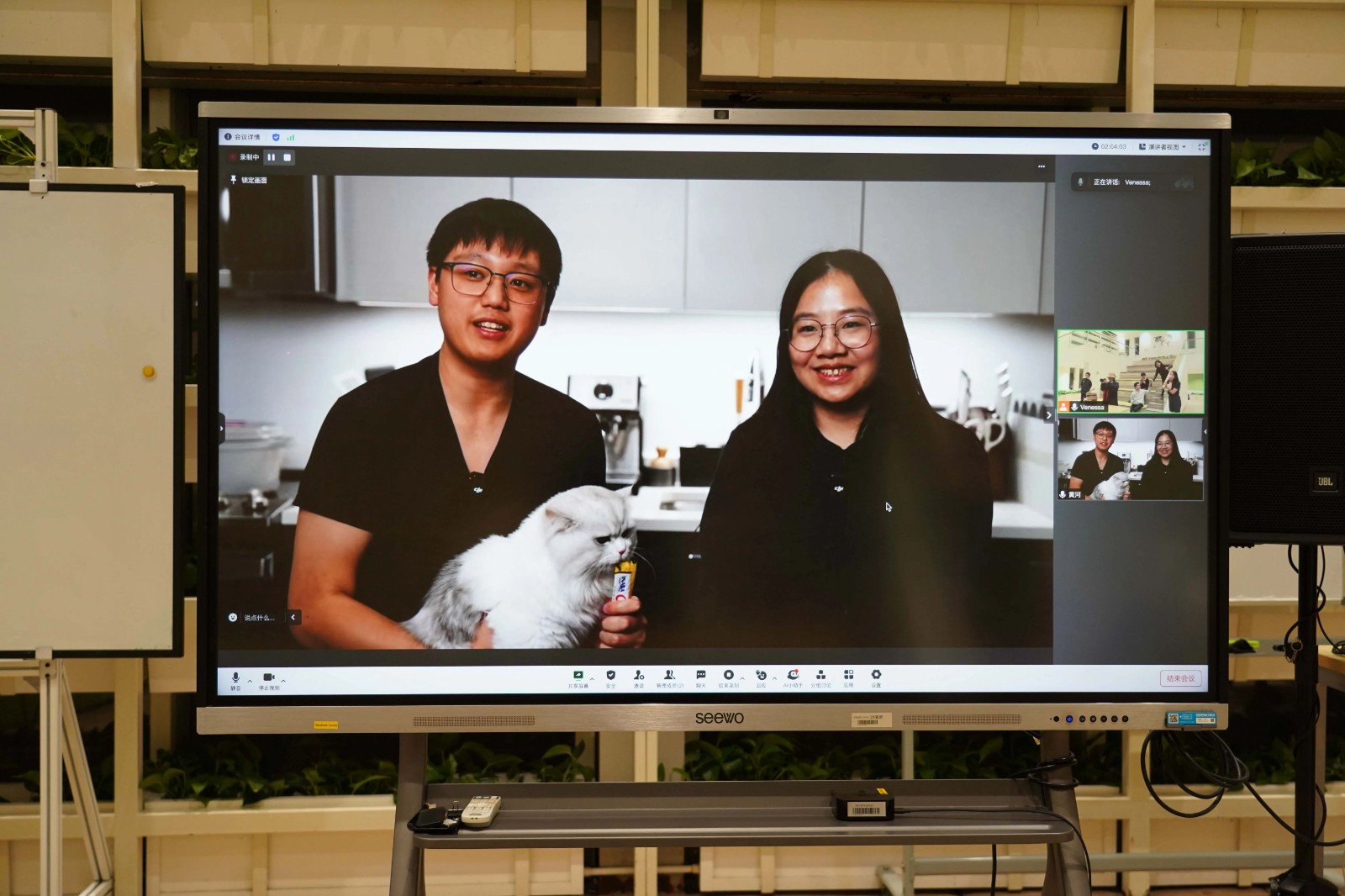
Peter Huang: Bachelor's degree in Computer Science from Worcester Polytechnic Institute (WPI) in the U.S. He has 8 years of R&D experience and has received the ISEF ACM Special Award from the American Computer Association, as well as multiple hackathon awards. He has years of experience in developing smart IoT devices and also participated in the development of Geely's Terrafugia flying car project and the MyRide autonomous driving project.
Selina Gong: UI/UX and VI designer, founder of Eureka International, an international education investment group, and recipient of the AACYF Top 30 Under 30 award in the education and consumer services category for 2021. Currently pursuing an MPP at Harvard University's Kennedy School of Government, she holds a Bachelor's degree in Art and Design from the University of Michigan. She has extensive experience in entrepreneurship, management, and interactive design.
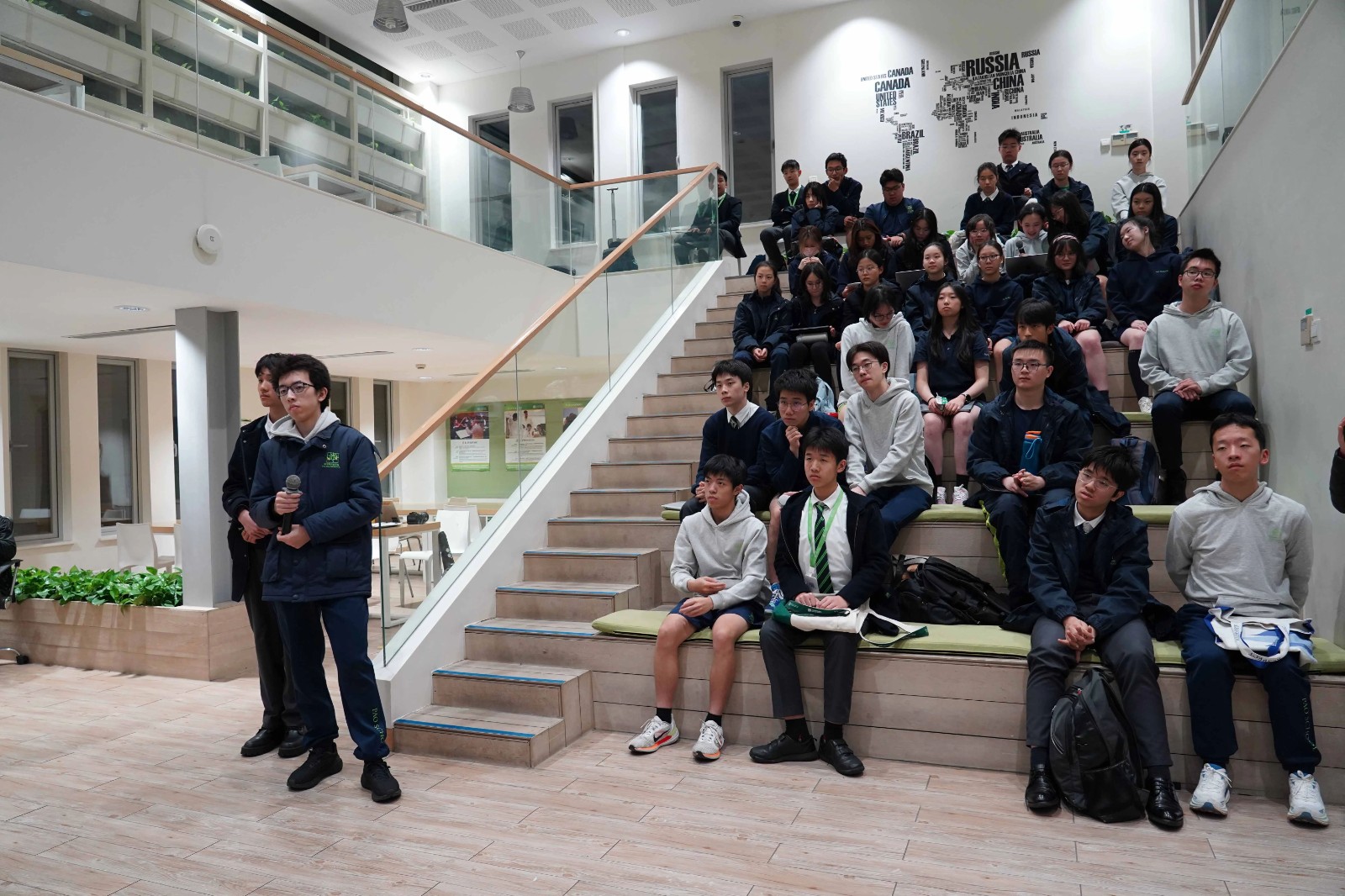
When discussing the division of roles within a startup team, both Peter and Selina emphasised the importance of a product manager. A product manager needs to have a broad, interdisciplinary knowledge base, while also being skilled at breaking down problems, coordinating the team, and effectively integrating members with different roles, to ensure the project progresses as planned. According to both, Pao School offers a great learning environment, providing students with opportunities to develop their management skills. By creating and running student-led clubs, every student has the opportunity to learn essential management skills, they agreed. This hands-on experience helps in the development of problem-solving and independent thinking abilities.
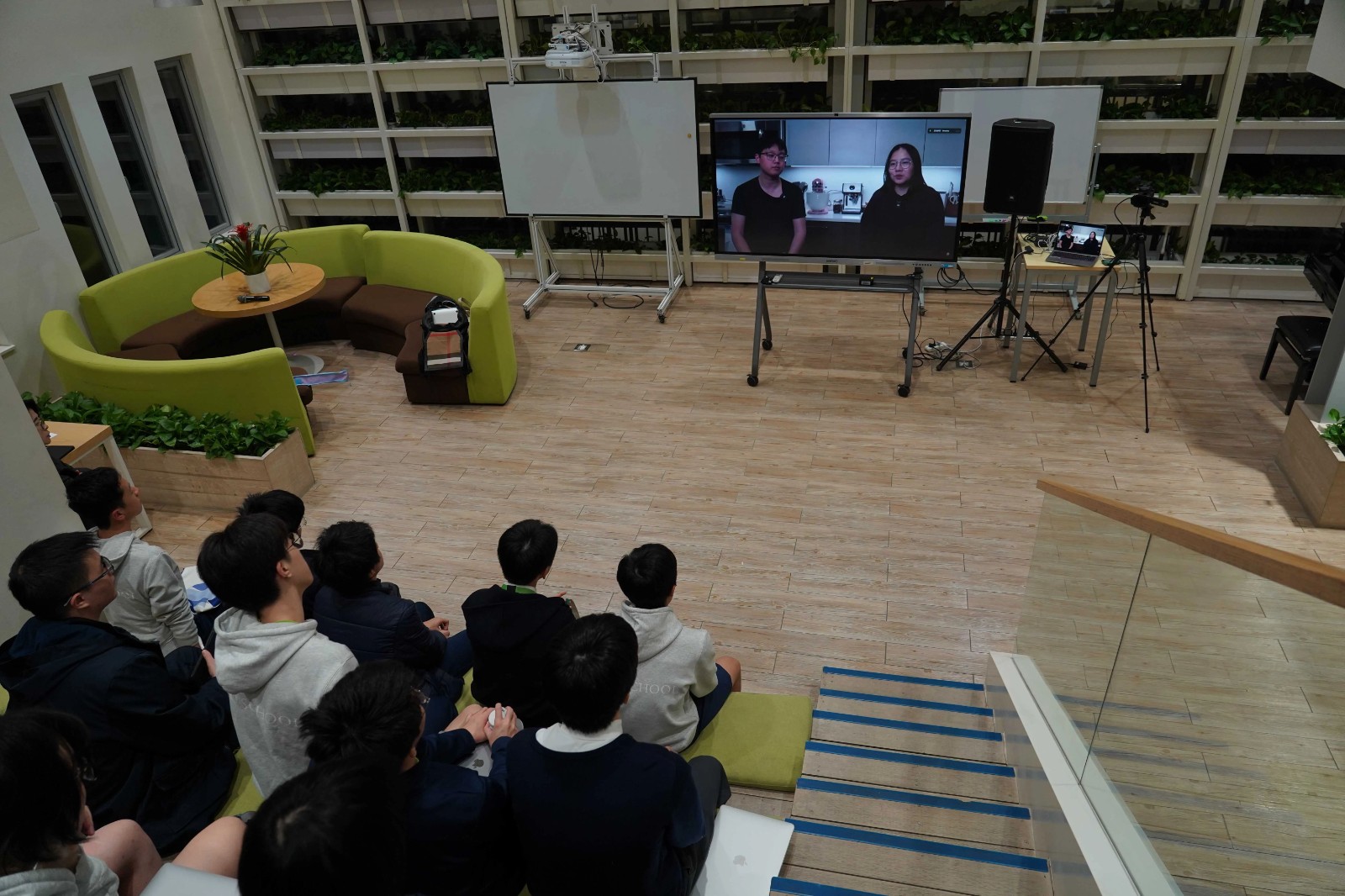
Peter Huang described founding a club called 'Fantastic News.' At first, this club attracted over 30 student membership applicants, which he found overwhelming. However, over time, he noticed that most of these members were just going through the motions. Upon reflection, he realised that the problem lay with him. As team leader, he wanted to handle everything himself, but by exercising such strong control he was demotivating all the other members. This experience taught him that a good leader must learn to delegate appropriately, build trust, and allocate tasks effectively while regularly checking on progress and outcomes. "If a leader takes on all the work, the other members will naturally just coast along," he said.
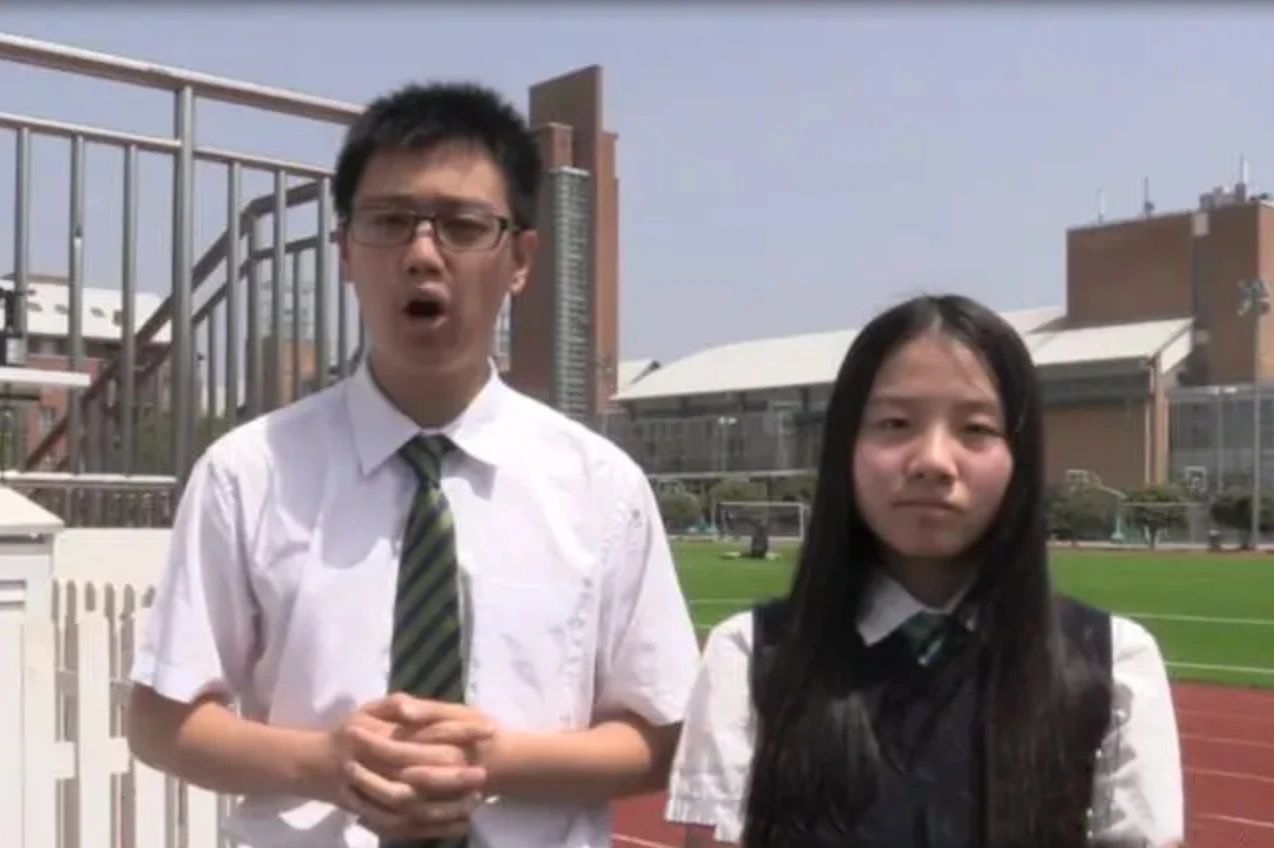
Peter Huang and Selina Gong (Smart Campus Environment Project, 2016)
Discussing the beginnings of entrepreneurship, the two alumni agreed that there were many opportunities on campus. The school is not only a vibrant startup 'incubator' but also an excellent 'testing ground' for bringing ideas to life, they suggested. During their own time at the school, Peter Huang and Selina Gong had collaborated to build a 'Campus Smart Weather Station' — designing the model, developing the website, and implementing it. This was their first project together.
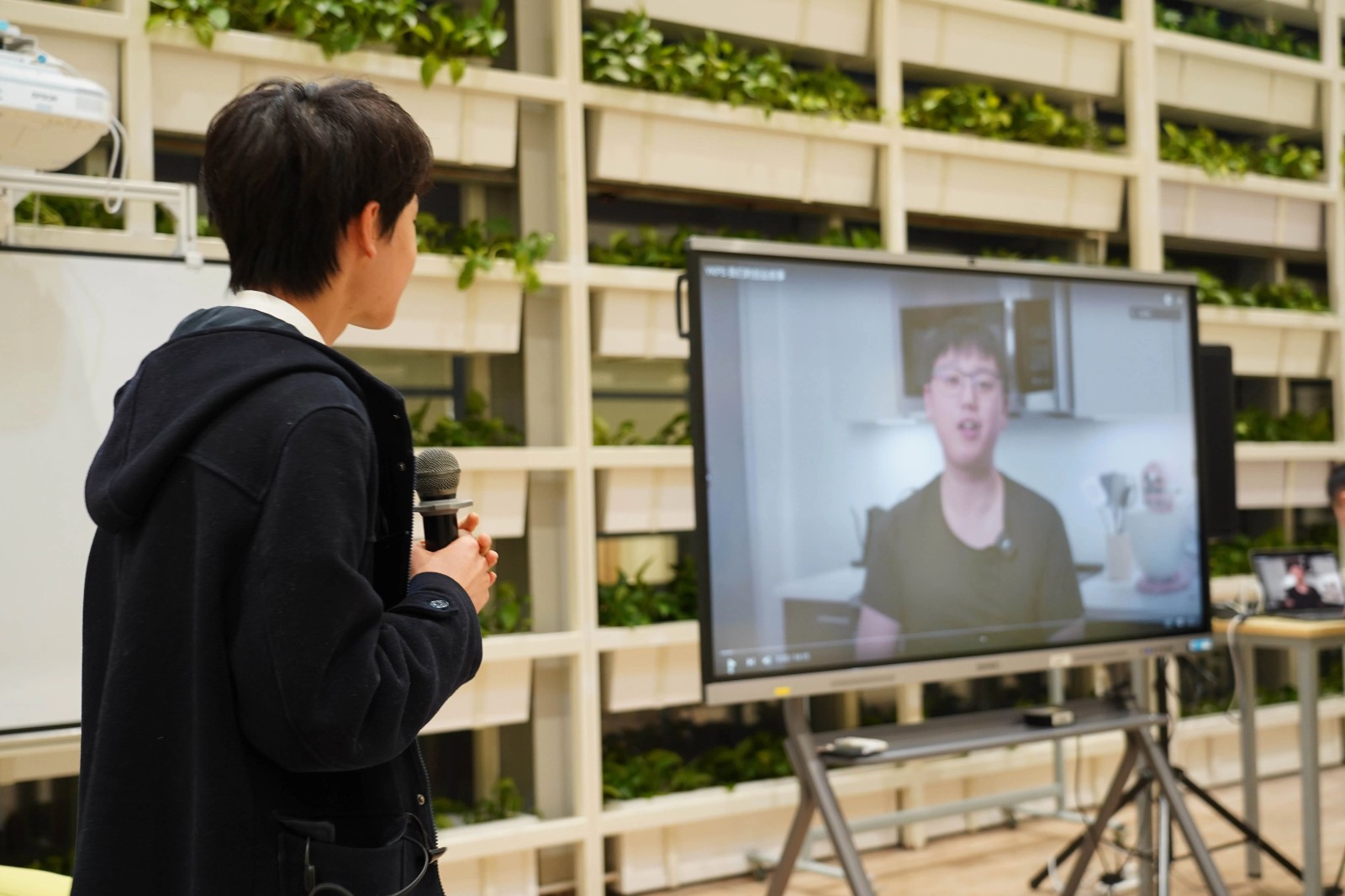
They encouraged everyone with even basic programming skills to try working on small projects. For example, the irrigation system of the Oxygen Bar has areas that could be improved. When it floods, it's like a waterfall, they said, with too much water on one side and not enough on the other. If students developed a project to tackle this issue they would learn a lot of practical knowledge in the process, for instance through the use of Arduino, and enabling communication between server and sensors. Peter Huang jokingly mentioned that he still uses code learned from the 'Campus Smart Weather Station' project in his current work. "Juniors and seniors, why not start with some small problems around you? You might just find inspiration for your own entrepreneurial ventures," he said.
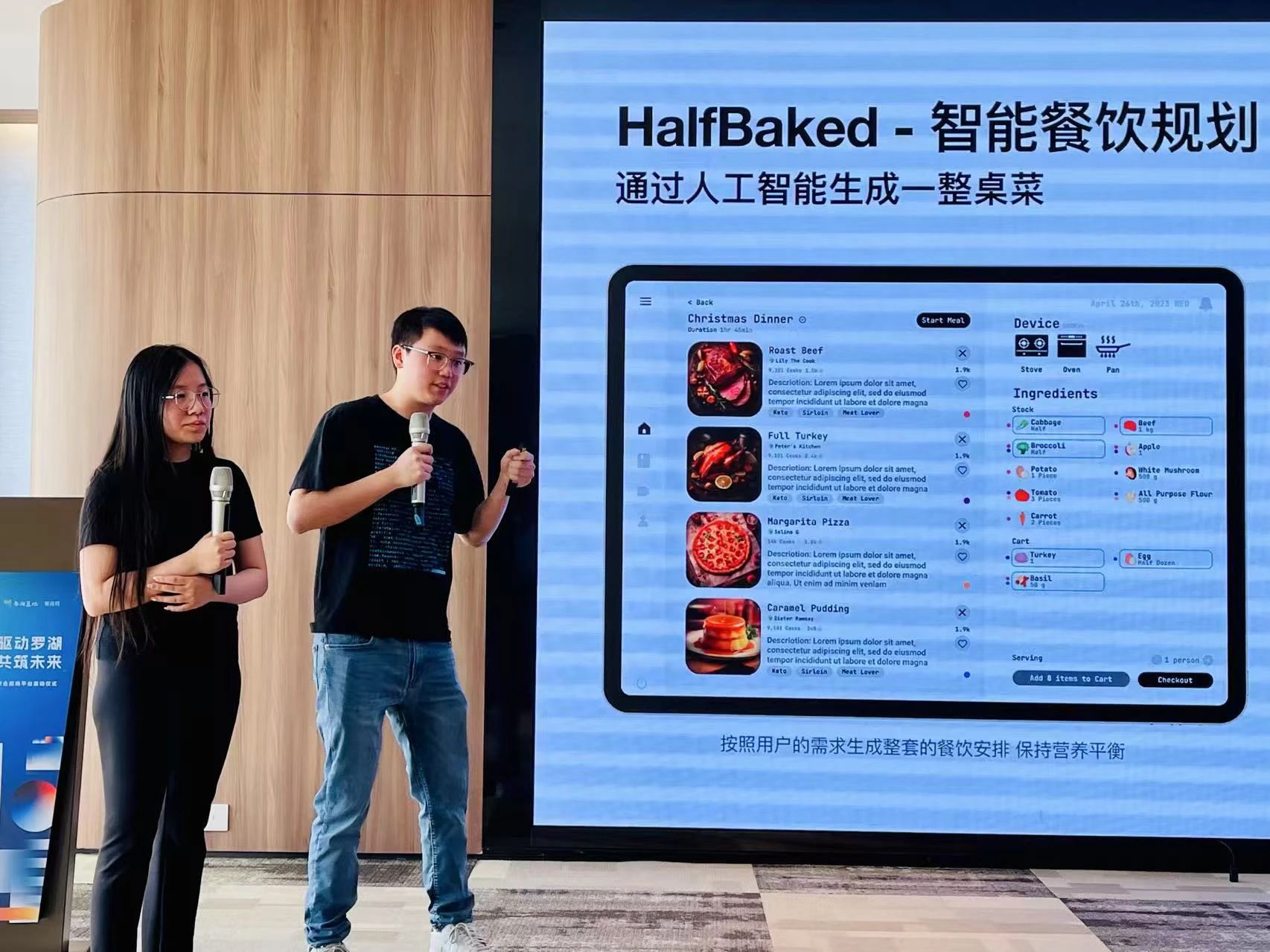
During the final Q&A session, when asked about the 'person they are the most grateful for,' Peter and Selina both mentioned their former teachers. Peter specifically expressed his gratitude to Mr. Graham Topp, his homeroom and information technology teacher in Year 6. He recalled that Mr. Topp recognised his computer talent early on, providing him with additional learning materials and allowing him the freedom to explore the world of information technology at his own pace. This ongoing encouragement and support led Peter to gradually build up his confidence on solid foundations.
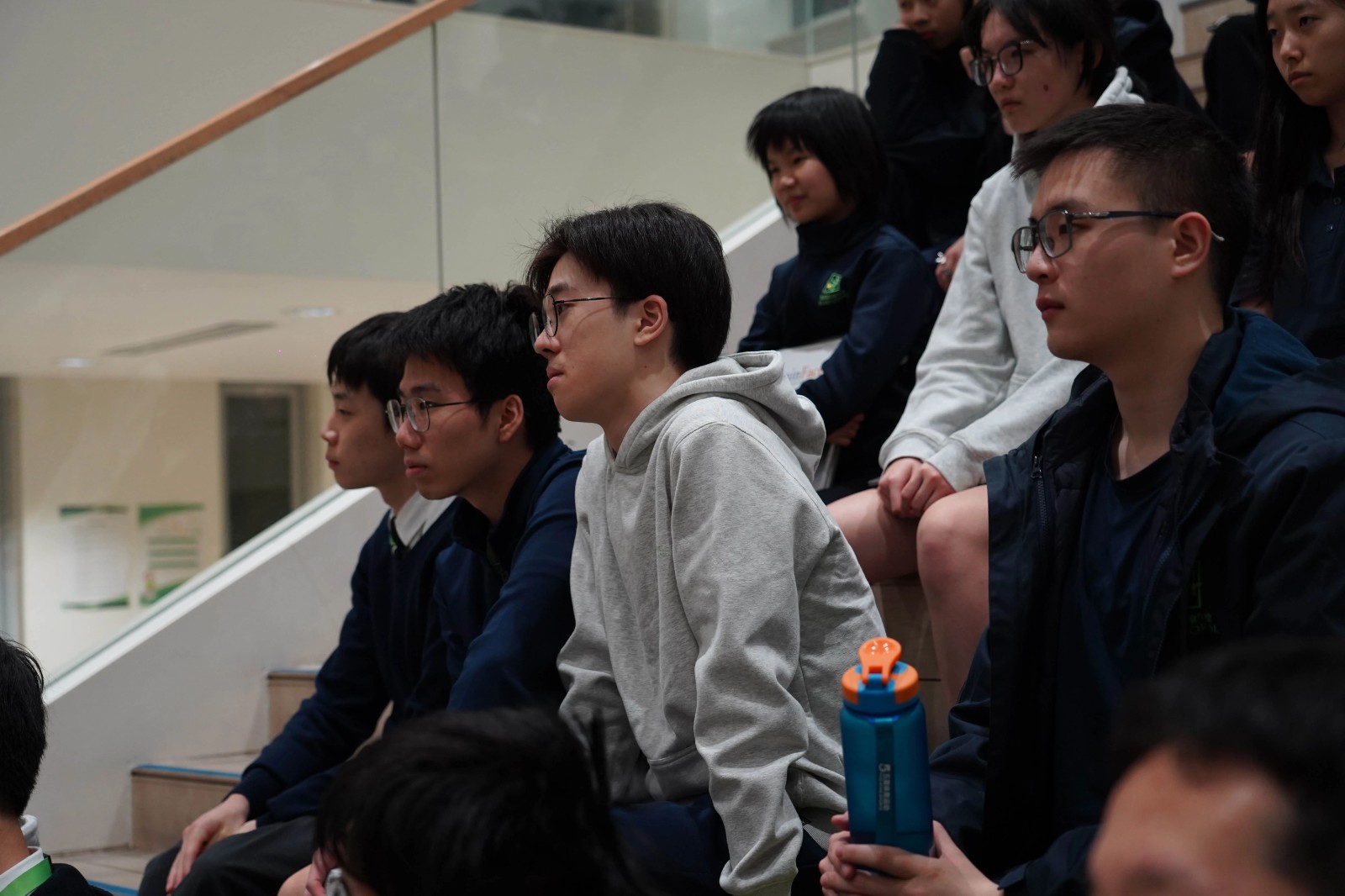
Selina spoke about the help she received from Ms. Weng Meiqi at the Hongqiao campus. Selina was a member of the production team for a science magazine founded by Ms. Weng, and this experience had a profound impact on her. Ms. Weng ignited her passion for scientific exploration, telling her: "Life doesn't have to be perfect; 'moderation' is the best state. When we look down at the Earth from the heights of the universe, all our difficulties seem very small." This philosophy has helped Selina learn to achieve balance in her own life.